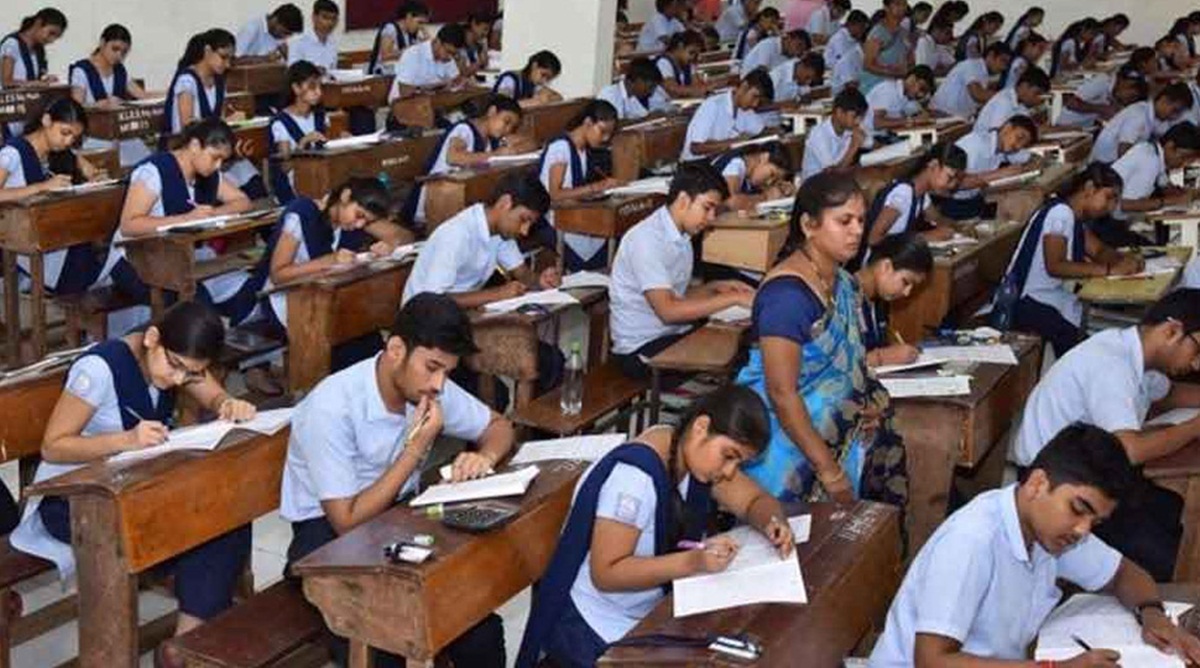X: @the_news_21
The 10th and 12th board exams are often considered pivotal moments in a student’s educational journey, shaping their future career paths. Recently, the Central Board of Secondary Education (CBSE) has made significant alterations to the examination pattern, ushering in a new era of evaluation. These changes, introduced by the Union Ministry of Education, mark a departure from traditional assessment methods and aim to provide a more holistic approach to student evaluation.
One of the most notable modifications is the restructuring of the exam format, encompassing both objective and subjective elements. In response to evolving educational needs, CBSE has augmented the number of multiple-choice questions (MCQs) while reducing the emphasis on descriptive questions. This adjustment seeks to foster critical thinking and problem-solving skills among students, aligning with modern pedagogical practices.
However, the overhaul extends beyond mere question formats. In a paradigm-shifting move, CBSE has opted to discontinue the practice of declaring toppers and providing percentage scores in both the 10th and 12th results. Additionally, distinctions based on marks, including the ‘distinction’ category for students achieving over 90%, will no longer be conferred. This shift reflects a departure from the traditional emphasis on competition and rank-based assessments, prioritizing a more holistic understanding of student achievement.
Furthermore, the board has announced that classifications such as ‘1st class’, ‘2nd class’, or ‘3rd class’ will no longer be assigned based on total marks. Instead, the focus will shift towards qualitative evaluation, emphasizing skill acquisition and competency development over rote memorization and high scores.
Crucially, CBSE underscores that these changes aim to create a more inclusive and equitable educational environment, fostering a culture of learning that transcends numerical metrics. Consequently, higher education institutions and prospective employers will be tasked with independently evaluating students’ academic performance, negating the need for overall percentage calculations by the board.
As the CBSE examinations commence on February 15, students and educators alike brace for a transformative approach to assessment. By embracing innovation and adaptability, CBSE paves the way for a more student-centric educational landscape, one that celebrates diversity, creativity, and holistic growth.
Also Read: Sanjay Raut Reveals Secret: Why Praful Patel Nominated Again for Rajya Sabha?








clomid pills can i purchase cheap clomiphene without rx where to buy cheap clomiphene tablets how can i get cheap clomid without dr prescription cost generic clomiphene for sale can i get generic clomiphene without rx cost of clomiphene at cvs
This is a topic which is in to my heart… Many thanks! Unerringly where can I upon the acquaintance details due to the fact that questions?
This is a keynote which is near to my heart… Diverse thanks! Faithfully where can I notice the phone details due to the fact that questions?
buy zithromax 250mg generic – buy zithromax 250mg pill cheap metronidazole
semaglutide online order – buy semaglutide 14 mg order periactin 4 mg online
motilium 10mg drug – buy cyclobenzaprine generic flexeril ca
buy amoxicillin without a prescription – diovan brand where to buy combivent without a prescription
augmentin 375mg pill – atbioinfo ampicillin medication
cost esomeprazole 20mg – anexamate esomeprazole 40mg price
coumadin 2mg pill – https://coumamide.com/ hyzaar price
mobic oral – moboxsin.com order generic mobic
buy deltasone generic – https://apreplson.com/ oral deltasone 20mg
best ed pills at gnc – https://fastedtotake.com/ medication for ed dysfunction
amoxil us – https://combamoxi.com/ amoxil drug
where can i buy diflucan – this diflucan order
order generic cenforce 50mg – site buy cheap generic cenforce
order cialis online no prescription reviews – site canada drugs cialis
zantac 300mg cheap – https://aranitidine.com/ buy ranitidine no prescription
how long does it take for cialis to take effect – https://strongtadafl.com/ is there a generic equivalent for cialis
With thanks. Loads of conception! neurontin 300 mg gabapentina para que sirve
cheap viagra buy uk – on this site order viagra australia
Thanks recompense sharing. It’s first quality. https://buyfastonl.com/
The sagacity in this piece is exceptional. https://ursxdol.com/ventolin-albuterol/
More posts like this would make the online time more useful. https://prohnrg.com/product/orlistat-pills-di/
More posts like this would make the blogosphere more useful. https://aranitidine.com/fr/acheter-fildena/
This is the make of enter I unearth helpful. https://ondactone.com/product/domperidone/
This is the gentle of literature I truly appreciate. http://zqykj.cn/bbs/home.php?mod=space&uid=302507
buy orlistat paypal – on this site orlistat 60mg ca
When someonee writes an piece of writing he/she retains the thought of a user in his/her brain that how a user can know it.
Thus that’s why this piece of writing is amazing. Thanks! https://Hallofgodsinglassi.Wordpress.com/
The reconditeness in this ruined is exceptional. http://www.cs-tygrysek.ugu.pl/member.php?action=profile&uid=98769
You can conserve yourself and your ancestors close being alert when buying medicine online. Some pharmaceutics websites manipulate legally and put forward convenience, privacy, bring in savings and safeguards as a replacement for purchasing medicines. buy in TerbinaPharmacy https://terbinafines.com/product/imitrex.html imitrex
I couldn’t hold back commenting. Profoundly written! TerbinaPharmacy
I am in truth enchant‚e ‘ to coup d’oeil at this blog posts which consists of tons of worthwhile facts, thanks for providing such data.
Đến với J88, bạn sẽ được trải nghiệm dịch vụ cá cược chuyên nghiệp cùng hàng ngàn sự kiện khuyến mãi độc quyền.
专业构建与管理谷歌站群网络,助力品牌实现全域流量的强势增长。谷歌站群
Tham gia cộng đồng game thủ tại Go88 để trải nghiệm các trò chơi bài, poker phổ biến nhất hiện nay.